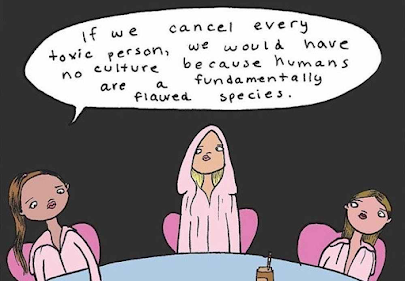This week's exploration dived into the concepts of Personal Learning Networks (PLN) and Personal Learning Environments (PLE), both being used interchangeably depending on the source.
On my learning path to becoming an ID, I became interested in the usefulness of social media for educational and professional purposes. To me, there is no doubt that Web 2.0 offers multiple opportunities to learn how to interact with other individuals, confront thoughts and perspectives, learn by sharing ideas and content, and grow by co-constructing open educational resources.
Therefore, some of this week's readings were of great interest to me, as they presented concrete frameworks to guide both learners and instructors in furthering their personal development through PLN. Interestingly, the papers from Krutka et al (2017) and Dabbah et Kitsantas (2012) presented some similarities in their respective framework, in particular by mentioning a self-reflective phase where individuals are encouraged to evaluate their experience of people they interact with, spaces they evolve in, or tools they use as part of their PLE.
Both frameworks showed that reflection is necessary to understand the usefulness of PLE in our personal development or the evolution of our identity and role within those structures. However, I felt a bit frustrated that none of these papers discussed the input of PLE and/or PLN in a bigger picture, like at the scale of our lives. Both papers emphasize the intentionality of developing and nurturing a PLN, but we cannot ignore the part of "the unexpected" in the equation. Let me try a weird comparison. Healthcare-related TV shows triggered many vocations among individuals who, at least for some of them, did not really connect their choice of career with the influence of fictional programs in their life. Therefore, people joining networks and communities as part of their PLE might be subconsciously influenced by some specific content and influential individuals. In the end, those people, who started their PLN for specific needs might end up changing their personal paths because of unexpected meetings, whether online or offline, or due to unexpected matches with some topics and ideas.
I can relate to that example as I found myself changing career paths without the need to change career paths (at least no conscious need). As I engage in self-reflection on this very specific aspect of my life during that semester, I realize how developing a PLN for specific and restricted needs related to instructional design actually changed my professional and personal life in a very insidious manner.
To wrap this up, as highlighted by the two articles mentioned above, reflecting on our personal and social identity is necessary to refine our PLN. But while it's important to engage in self-reflection at the PLN scale, it seems even more impactful and important to me to evaluate the impact of PLNs in our personal and professional choices, as well as their influence on our attitudes, beliefs, and values.

It is wise to be mindful that we can be unique on our learning paths. And developing our personal best means is a huge part of achieving our individual success. I think establishing PLE's are a large part of navigating life's many challenges, and we have many PLE's, each designed around meeting the unique challenges afforded by each scenario.
ReplyDelete